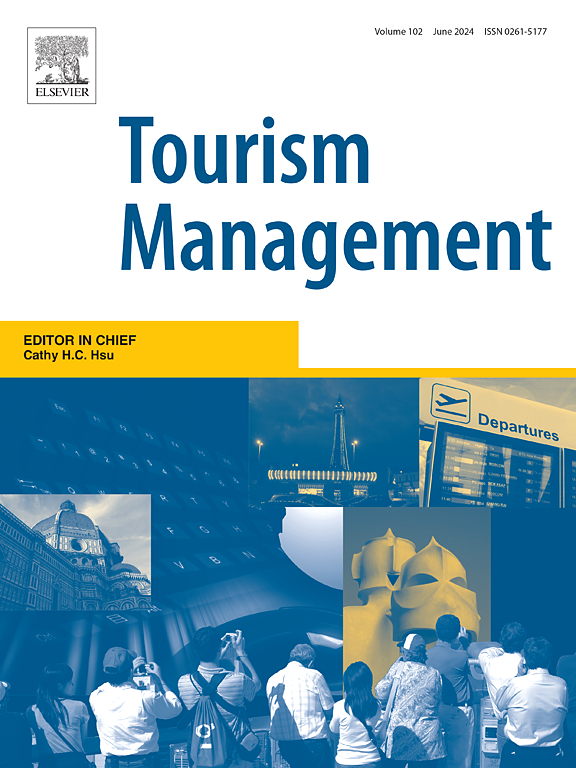机器人让我觉得自己更像人!调查员工与机器人的互动如何减少工作场所的非个性化
IF 10.9
1区 管理学
Q1 ENVIRONMENTAL STUDIES
引用次数: 0
摘要
最近的研究已经开始调查员工与机器人的互动,但员工与机器人的互动对工作场所的影响仍需要进一步探索。本研究采用心理授权的视角来揭示员工-机器人投入与工作场所去人格化之间的机制和边界条件。采用三项研究的混合方法研究设计。研究1采用定性研究方法,建立了机器人相关心理授权下员工-机器人敬业度的理论模型,包括意义、能力、自决和影响。研究2包括一个在线实验,结果表明,员工与机器人的接触可以显著减少人格解体的存在。研究3采用问卷调查的方法证明,通过机器人相关的心理授权,员工与机器人的敬业度降低了去人格化,发展性人力资源实践发挥了调节作用。我们的研究扩展了人机交互理论,并为旅游和酒店组织采用服务机器人提供了实践指导。本文章由计算机程序翻译,如有差异,请以英文原文为准。
Robots make me feel more like a human! Investigating how employee-robot engagement reduces workplace depersonalization
Recent research has begun to investigate employee-robot interactions, but the impact of employee-robot engagement in the workplace still requires further exploration. This research adopted a perspective of psychological empowerment to uncover the mechanisms and boundary conditions between employee-robot engagement and workplace depersonalization. A mixed-method research design with three studies was employed. Study 1 involved a qualitative research approach and developed a theoretical model of employee-robot engagement under robot-related psychological empowerment, which includes meaning, competence, self-determination, and impact. Study 2 consisted of an online experiment, and the results revealed that employee-robot engagement can significantly reduce the presence of depersonalization. Study 3 employed a questionnaire survey and demonstrated that employee-robot engagement, through robot-related psychological empowerment, reduced depersonalization, with developmental HR practices playing a moderating role. Our research expands human-robot interaction theories, and offers practical guidance for the adoption of service robots in tourism and hospitality organizations.
求助全文
通过发布文献求助,成功后即可免费获取论文全文。
去求助
来源期刊

Tourism Management
Multiple-
CiteScore
24.10
自引率
7.90%
发文量
190
审稿时长
45 days
期刊介绍:
Tourism Management, the preeminent scholarly journal, concentrates on the comprehensive management aspects, encompassing planning and policy, within the realm of travel and tourism. Adopting an interdisciplinary perspective, the journal delves into international, national, and regional tourism, addressing various management challenges. Its content mirrors this integrative approach, featuring primary research articles, progress in tourism research, case studies, research notes, discussions on current issues, and book reviews. Emphasizing scholarly rigor, all published papers are expected to contribute to theoretical and/or methodological advancements while offering specific insights relevant to tourism management and policy.
 求助内容:
求助内容: 应助结果提醒方式:
应助结果提醒方式:


